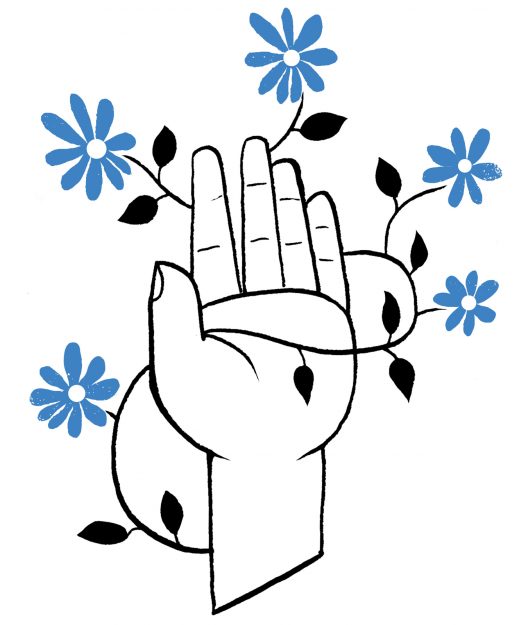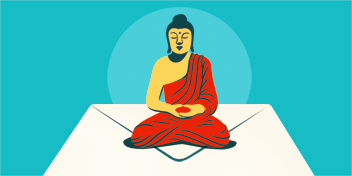If there is one in pairs, or perfection that arouses more resistance than the others, it is probably renunciation – nekkhamma in Pali; in Sanskrit, naishkramya. Giving up everything is anathema to most Westerners, all the more so when, as Buddhist texts tell us, it means “giving up the world and living a holy life”. Imbued with consolation, we cannot grasp “the pleasure of renunciation”. But if we look at renunciation with more dispassion, we can begin to see its benefit in bringing us to enlightenment. The third of the ten perfections of Theravada, renunciation, is the practice of non-attachment, of non-attachment to anything. In the Mahayana tradition, it is associated with right intention and bodhisattva commitment to serve others. And here is the key. To let go of the desire forever is not the goal; we will fail. It cultivates the intention to release our attachment not only to material things and sensual pleasures, but also to self-obsession and destructive emotions. Renunciation is not about taking monastic vows or trading your Tempur-Pedic mattress for a pallet; It’s about the wisdom of realizing that clinging to something ephemeral only brings grief. Think of renunciation as Marie Kondo of internal disorder: good spiritual cleansing leads to the joy of freedom. To find true happiness we have to let go.
This is the third installment in our Pocket Paramis series of quick tips to keep in mind as you work with the ten perfections: generosity, ethical behavior, renunciation, wisdom, energy, patience, truthfulness, determination, loving-kindness, and equanimity. If you need a visual reminder, a printable / downloadable version is available here.
Illustration by Hanna Barczyk
- “Renunciation does not have to be viewed as negative. I was taught that it had to do with letting go of holding back. . . . What you do without is closing and switching off from life. ”—Pema Chödrön
- “If one can achieve greater happiness by renouncing a lesser happiness, the wise man should renounce the less and consider the greater happiness.” —Dhammapada 21 (290), trans. Acharya Buddharakkhita
- Tip: To give up excessive indulgence – food, drink, sex, internet – focus on one thing at a time. For most of us, liberation is not a sudden but a gradual process.
- “Avoiding samsara is figuring out how to function with an open, clear mind, not a down and incapacitated mind by destructive emotions.” —Yongey Mingyur Rinpoche
- A retreat removes distractions and creates optimal conditions for realizing our true nature. “For laypeople, meditation retreats are a form of temporary monastic renunciation,” says Gil Fronsdal.

Illustration by Hanna Barczyk
- “Buddha renounced his comfortable and self-indulgent life because he discovered the hidden pain that is inherent in all joy. He realized that clinging to sense pleasures is an obstacle to the inner peace that is true happiness. ”—Lama Yeshe
- “When we give up according to the Mahayana, we give up clinging to ourselves and essentiality altogether in order to gain the liberation that will enable us to help others.” —Phakchok Rinpoche
- Tip: Renunciation is discriminating wisdom. Every five years, take everything out of your house, put it on the lawn, and only take back what you use and love.

Get Daily Dharma in your email
Start your day with a new perspective

Discover timeless teachings through modern methods.
With Stephen Batchelor, Sharon Salzberg, Andrew Olendzki and more
See our courses

Thank you for subscribing to Tricycle! As a nonprofit organization, we rely on readers like you to keep Buddhist teachings and practices widely available.
This article is only for subscribers!
Subscribe now
Already a subscriber? Log in.
Did you miss our previous article...
https://yogameditationdaily.com/meditation-retreats/the-5-best-resorts-on-koh-pha-ngan






